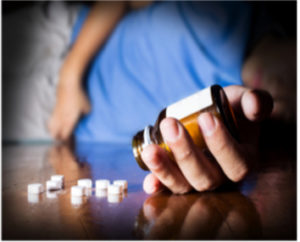A drug overdose is an unfortunate, but a growingly popular occurrence. In fact, in 2017, a record number of Canadians died from opioid overdoses, according to CBC. Compared to 2016, fatal overdoses were up more than 45 percent in 2017.
What is an overdose?
By definition, an overdose is an excessive and dangerous dose of a drug, which can have various adverse side effects, even including death. While not all overdoses result in death, there are many that do. Furthermore, one of the key factors in recovering from an overdose is having someone around you notice that you have overdosed so they can get you help.
When you have overdosed, you are unable to get yourself help because you are likely unconscious and/or incredibly ill. Therefore, this makes it immensely important that people know how to identify a drug overdose. It could be life or death for someone.
While no one certain thing guarantees that you will overdose, here are a few things that put you at a greater risk:
- Mixing opioids with sedatives, such as benzos or alcohol.
- Using drugs in very high doses – more so than usual.
- Returning to the drugs after having been in a detox period.
Physical Signs of an Overdose
But, you may not be aware if someone has done some or any of these things, so here is how to identify a drug overdose despite knowing someone’s most recent actions:
- Nausea or vomiting
- Paranoia
- Seizures
- Chest pain
- Dilated pupils
- Agitation
- Unresponsiveness
- Unconsciousness
These are just a few of the symptoms of an overdose; this is not an all-inclusive list. Someone who has overdosed on drugs may exhibit some, or even most of these symptoms. But even just a few of these symptoms can indicate that someone is experiencing an overdose.
When someone overdoses, several things take place within their body – including the slowing of their breathing, then the slowing of their heart rate, and then everything else just starts to shut down from there.
If you believe someone has overdosed, start by checking their breathing and their heart rate. Immediately call the authorities and get instructions on how you should proceed while help is on the way.
Drugs are a serious thing and they can have serious consequences, including an overdose. If you or someone you know is struggling with a drug addiction, get help before it is too late and save yourself or your loved one from experiencing an overdose.





